International Advisory Committee Meeting Focuses on HSE University’s Third Mission
On May 31, International Advisory Committee met online to discuss HSE University’s third mission, its implementation and place in the university strategy. The meeting focused on HSE University’s volunteering and social initiatives, cooperation with non-profits, community engagement, students’ field research trips around Russia, and HSE Business Incubator.
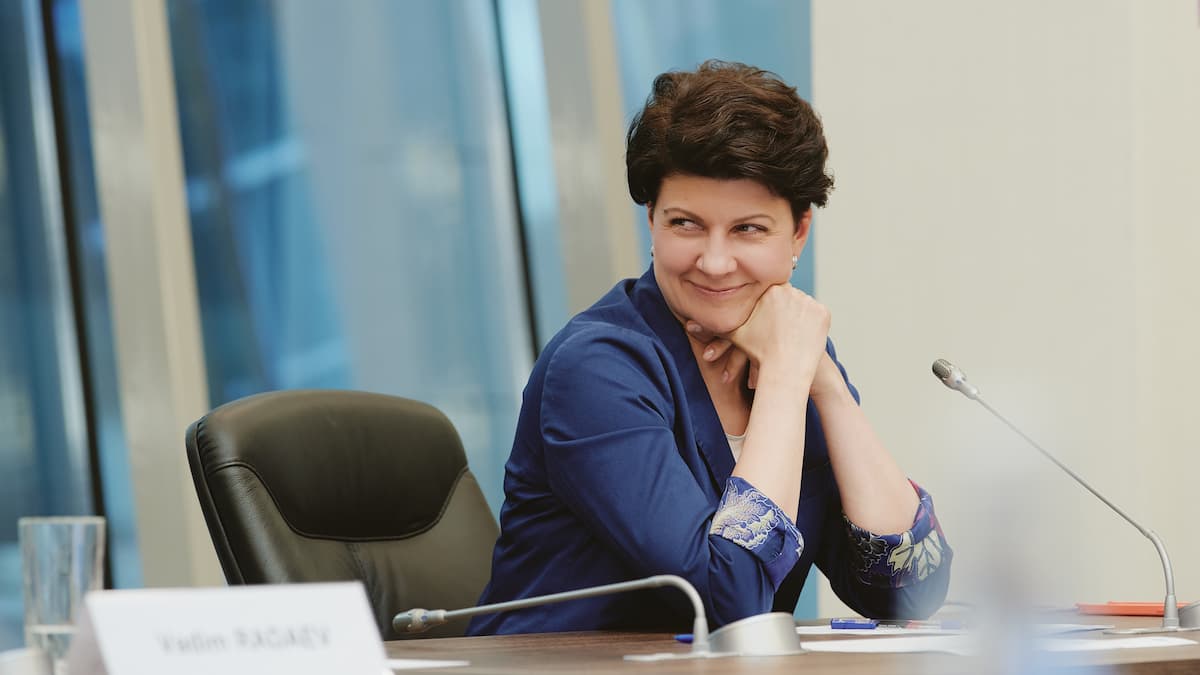
HSE University traditionally pays a lot of attention to interaction with society. Over the last 10 years, the University has been implementing a wide range of volunteer and charity projects in the cities of its presence. However, it was not until 2020 that the concept of the third mission became part of the university strategy alongside education and research.
Third mission came to the fore in 2020 largely due to the pandemic. The lockdown and the rapid transition to online education created the need for wide-ranging support of different social groups, including senior citizens and secondary school students, as well as university staff and schoolteachers. In this respect, the pandemic has been both a challenge and an opportunity for sustainable development, enabling HSE University to initiate a large-scale discussion of the place of the third mission in the strategies of Russian universities.
The third mission is only possible when a university is fully successful in missions one and two, research and education. HSE University is no exception—we started focusing on the third mission at the time of crisis, on the one hand. But on the other hand, we did it when we reached very good results in both teaching and research. The third mission is contingent on missions one and two—it can only be successful in connection with those two.
The focus of the third mission is the integration of universities into regional and local development agendas, knowledge and technology transfer, and development of innovations, entrepreneurial culture, and human capital. Through the third mission HSE University establishes its role as a responsible university that integrates social responsibility with teaching and research.
In 2020, the Third Mission Centre appeared at HSE University to serve as the first think tank of this kind in Russia. The Centre prepared the first Russian public report on the third mission and initiated a free digital internship programme for Russian regional universities to share the experience and knowledge concerning the third mission. Last week, HSE University held VIII annual conference on the third mission of universities, which was attended by over 800 people and saw the participation of 18 international universities from different countries.

Ellen Hazelkorm, member of IAC, Policy Advisor to the Higher Education Authority (Ireland) Emeritus Professor and Director, Higher Education Policy Research Unit (HEPRU), Dublin Institute of Technology
This is an area that is close to my heart as I’ve done a lot of work on it. It’s called the third mission but it’s integral to the other two, research and education. I commend HSE in this regard. Societal or civic engagement is part of the core business of the institution. There is a whole list of complementary initiatives across Europe that I would recommend to HSE that they might engage with. It is an increasing part of what’s happening in terms of going beyond the COVID experience. How universities respond to communities that essentially fund them, and the value and contribution that the education makes is now a topic of huge conversation in the EU.
Russia is a partner of most EU initiatives (including Erasmus and Horizon Europe, which is about to start). The issue of research impact and value and benefit will be among evaluation criteria in Horizon Europe. That comes under the umbrella of RRI – responsible research and innovation. It is all about embedding the value of research for community in university strategy.
I would suggest that HSE University looks at it as integrated with teaching and research as opposed to something that hangs on its side—there needs to be a strategic plan how this fits into the university mission overall.
Ideas that emanate from this discussion should influence faculty recruitment, promotion and recognizing and valuing talent. One of the key things is to move beyond the volunteering to the fact that student projects and activities have to be credit-bearing–they have to be assessed. This is part of high impact learning.
Building Blocks of HSE University's Third Mission
Oleg Popov, Director of the HSE University’s Third Mission Centre, talked about Moscow Active Ageing project, which is run by the Moscow Mayor in partnership with HSE University. The project was launched in 2019 and provides older people (over 55 years of age) with the opportunity for additional training through involvement in lifelong learning initiatives with HSE University, communication and social adaptation, and creative projects. Activities offered include English and French conversation classes taught by HSE University students, lecture series, computer literacy course, legal clinic, and physical exercise classes.
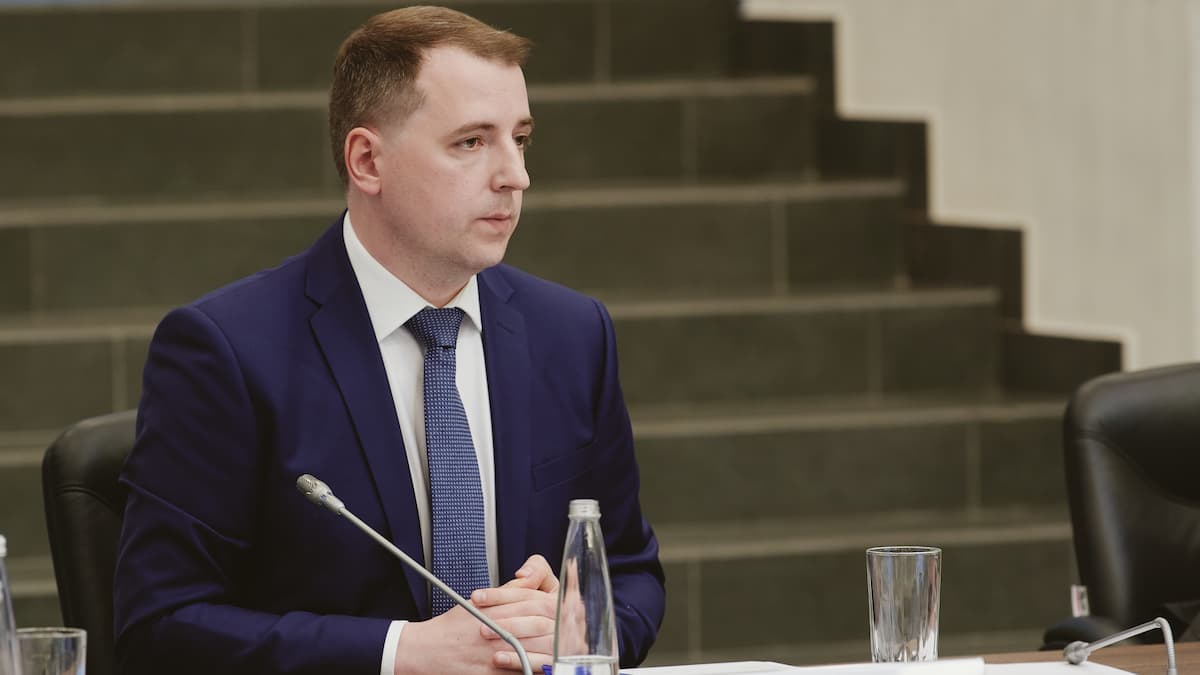
One of the tangible results of the project is the recently published book Along the Paths of Memory: Moscow in the Faces of Ordinary People with 115 stories illustrated by the HSE Art and Design School students. The book was created in Memoire writing course, which is also part of the project.
Pavel Zdorovtsev, Director of HSE Student Development Office, described student volunteering projects, focusing on new initiatives that emerged during the pandemic: an online camp for children aged 6-14, online tutoring sessions for HSE partner school students, and digital volunteers project, which aims to assist academic staff and other learners who need help with online platforms and new software used for online classes. Student volunteer projects are run by HSE Volunteer Centre which recruits, trains, and supports participants. However, a number of projects have been initiated by HSE students themselves, such as HSE University in Minecraft, which has become a popular platform for the University’s online events.
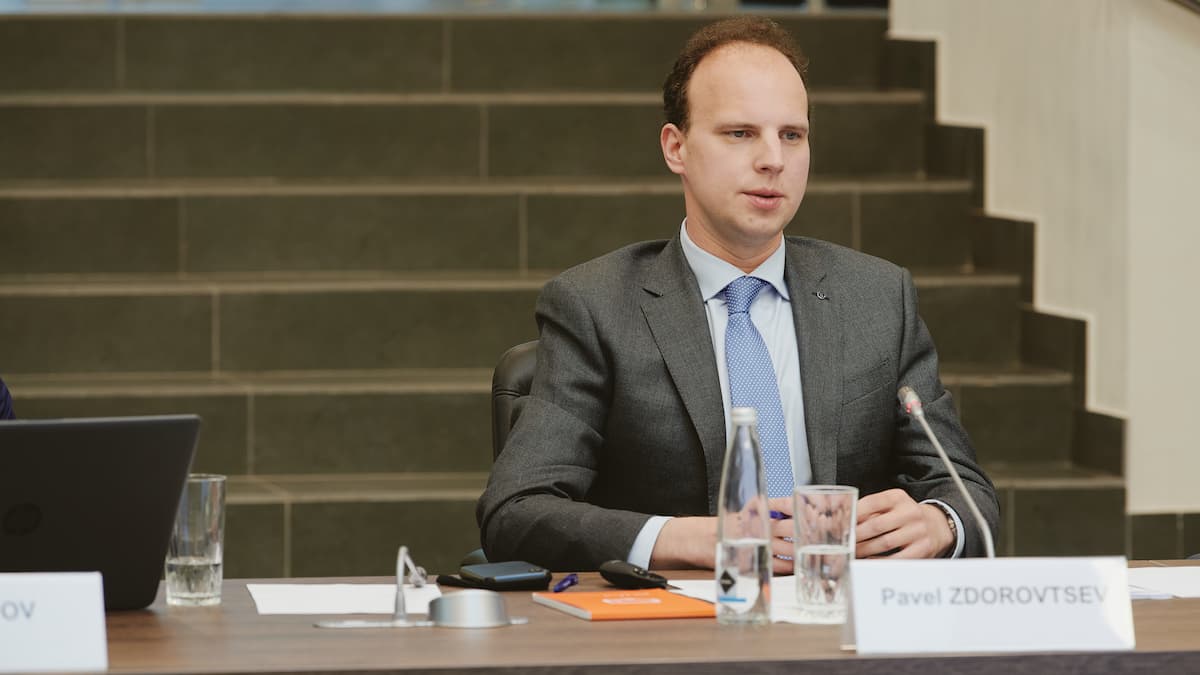
In the future, HSE University plans to focus on service learning and intellectual volunteering, rather than event volunteering, further develop corporate social responsibility, and create a matching platform for NGOs and student and staff volunteers.
Yulia Skokova, Director of the Centre for Civic Initiatives Assessment, Institute for Applied Political Studies, spoke about HSE’s cooperation with non-profits, which is mutually beneficial as students are able to gain new competencies and skills, as well as get access to field data for socially significant research, while NGOs can commission fundamental and applied research on topical social issues. HSE University is also actively providing pro-bono consultation on various topics.
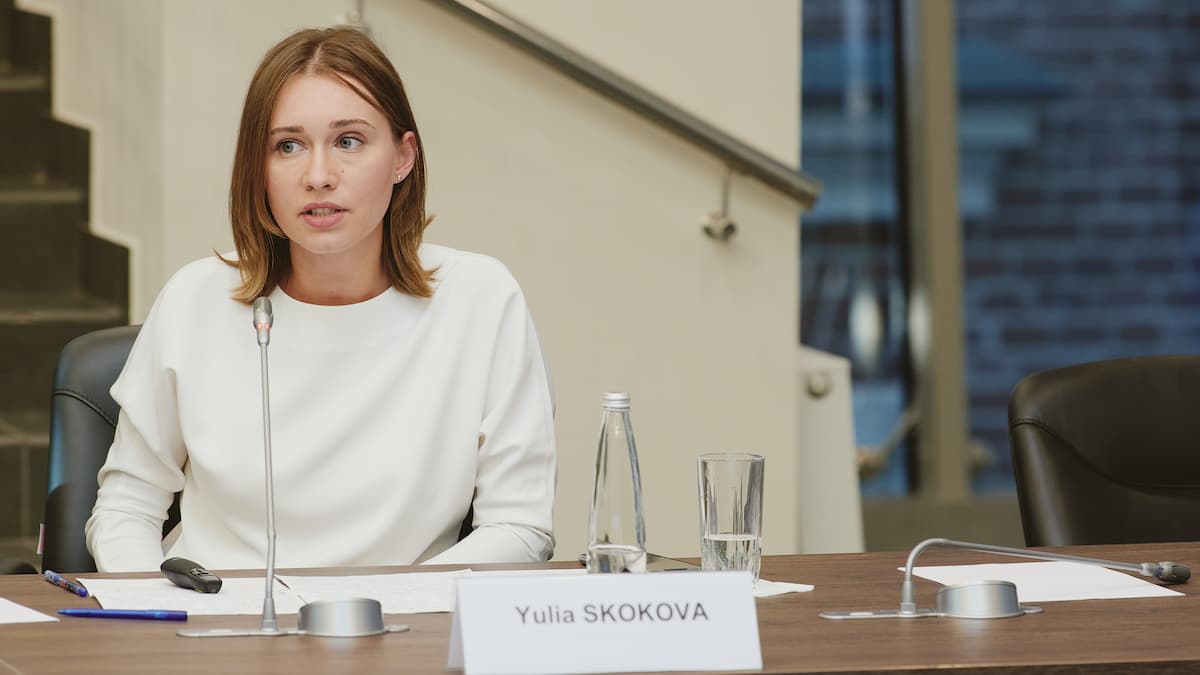
Collaboration with NGOs includes a Master’s programme ‘Communication in the Public Sector and NGOs’, several MA and BA courses taught by representatives of non-profits, and summer schools. Students can also write term papers under the supervision of NGOs (some of the recent applied research projects included Maternal Burnout: Recommendations for Improving Social Policy, Employment of People with Disabilities: Incentives and Barriers for Employers, and Sustainable Volunteering).

Maria Eremenko, Leading Expert of Centre for Local Community Relations, Institute for Applied Political Studies
We are a big university and we see the need to interact with local residents. Part of HSE University identity is being a city resident. The University provides relevant expertise for urban development projects, which are carried out with broad involvement of HSE students and staff. The aim of the projects is to redesign local public spaces in the neighbourhoods where HSE buildings are located.
HSE University also actively cooperates with local museums, cultural organizations, and local communities to create new cultural points of interest and conduct cultural events. Furthermore, HSE University experts take part in public discussions on key issues of the Moscow agenda and draw up recommendations for local authorities.
Another example of community engagement was given by Oksana Chernenko, Director for Innovations in Education, who talked about Rediscovering Russia Field Research project, which involves on-site educational activities by student groups (up to 12-15 persons) supervised by at least two HSE faculty members. Expeditions explore issues that are of practical value for local communities and enable students to master new skills, which are impossible to gain from desk research.
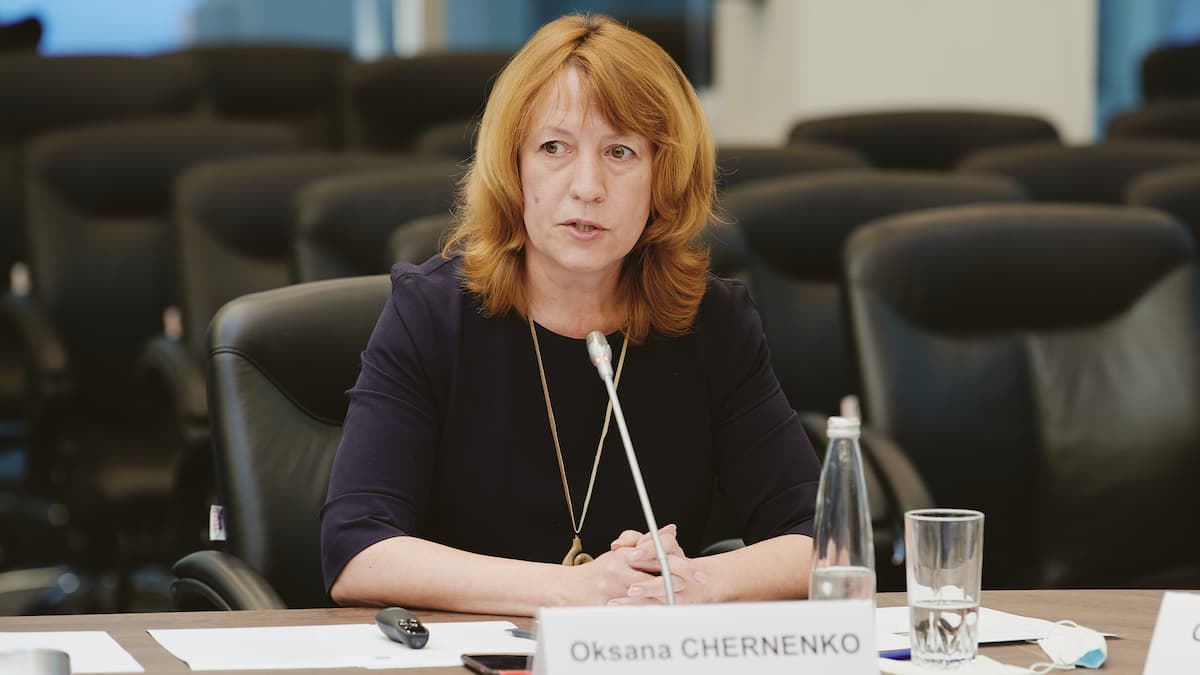
Almost 2,300 students and over 450 faculty members have taken part in expeditions to 65 Russia’s regions; all HSE University campuses are involved in the project. Future plans include developing a model for joint expeditions with partner universities and expanding the geography of expeditions.
Students use this experience not only to write articles, term papers or theses, but also to create analytical reports for regional and municipal authorities, reconstruction projects, materials for grant proposals for museums, as well as brand merchandise, photo exhibitions, etc.

Eric Maskin, Chairman of the International Advisory Committee
I think that the most valuable projects that HSE or other universities might engage in are those that make use of the special knowledge and expertise of the university. It is terrific from a human point of view if students volunteer in senior centres or nursing homes but those activities do not really bring to bear the special knowledge that university students and staff might have. So, I was particularly interested today in those projects which apply the knowledge and expertise acquired by the university.
Nina Feodosiadi, Head of HSE Business Incubator, spoke about the work of HSE Business Incubator, which is the leading university business incubator not only in Russia, but also worldwide. The Business Incubator strives to develop a community of like-minded individuals and foster an innovative and entrepreneurial environment. It actively works with corporate partners and shares experience with other universities.
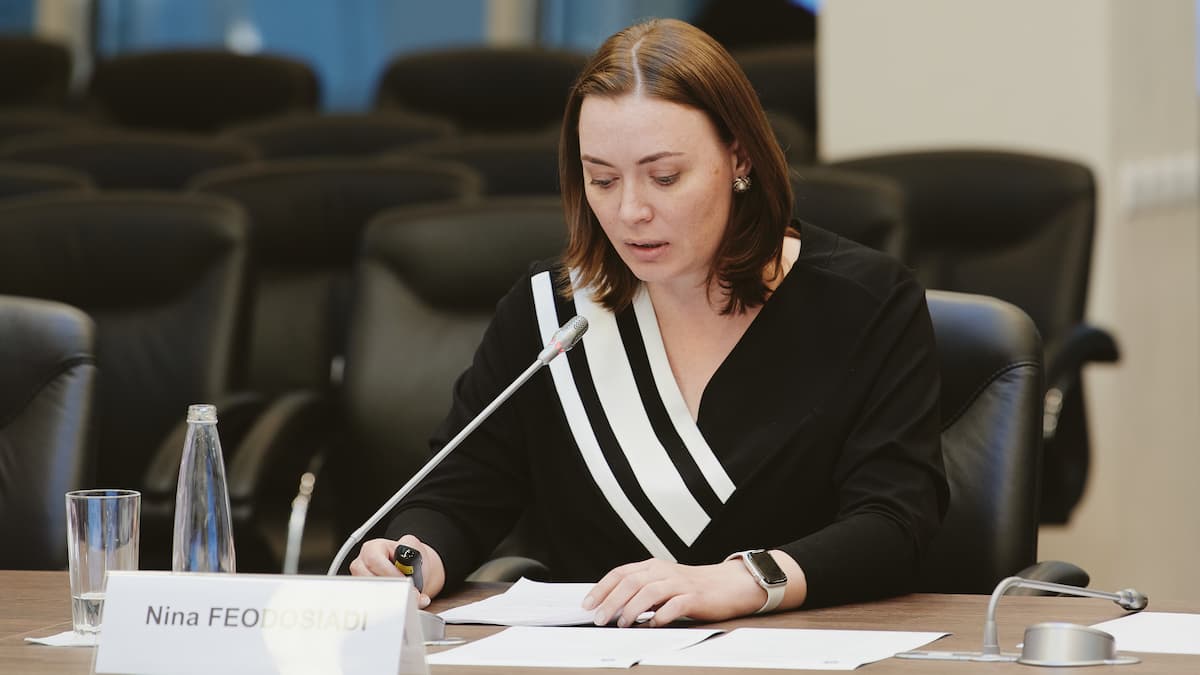
The Business Incubator plans to expand its scope of operations by developing a long-term commercialization strategy for university intellectual property and broadening student engagement through project-based learning. Ultimately, the goal is to build a University-based venture ecosystem - from designing courses to startup studio and HSE University’s own venture fund.

Qian Yingyi, Professor at the School of Economics and Management, Tsinghua University (China)
Talking about business incubators, this is the area where the third mission is most closely related to the first two, particularly in terms of teaching creativity because entrepreneurship is really about creativity. Main mission of universities is education. Teaching creativity is something new but critically important nowadays.
I think it is not the mission of universities to maximize the startups created by students or recent graduates. The main purpose should be using the knowledge created in the university to educate students so that they are more creative in the longer term. It is not necessary for them to start a business in school or right after school.
It is important to bring together students from different areas so that science and engineering students work with students in economics and business and in communications, integrating different disciplines. This is what creates value for students and what constitutes universities’ competitive advantage. It is also important to work with the business community—with the investors. For instance, there could be a position of Entrepreneur in Residence or Angel Investor in Residence.
Commenting on the presentations made during the meeting, Francisco Marmolejo, Education Advisor to the Qatar Foundation, congratulated HSE University on significant and varied level of activities conducted as part of the third mission and the important role in contributing to the well-being of society as a whole. He noted, however, that the connection with teaching and research is not always clear.
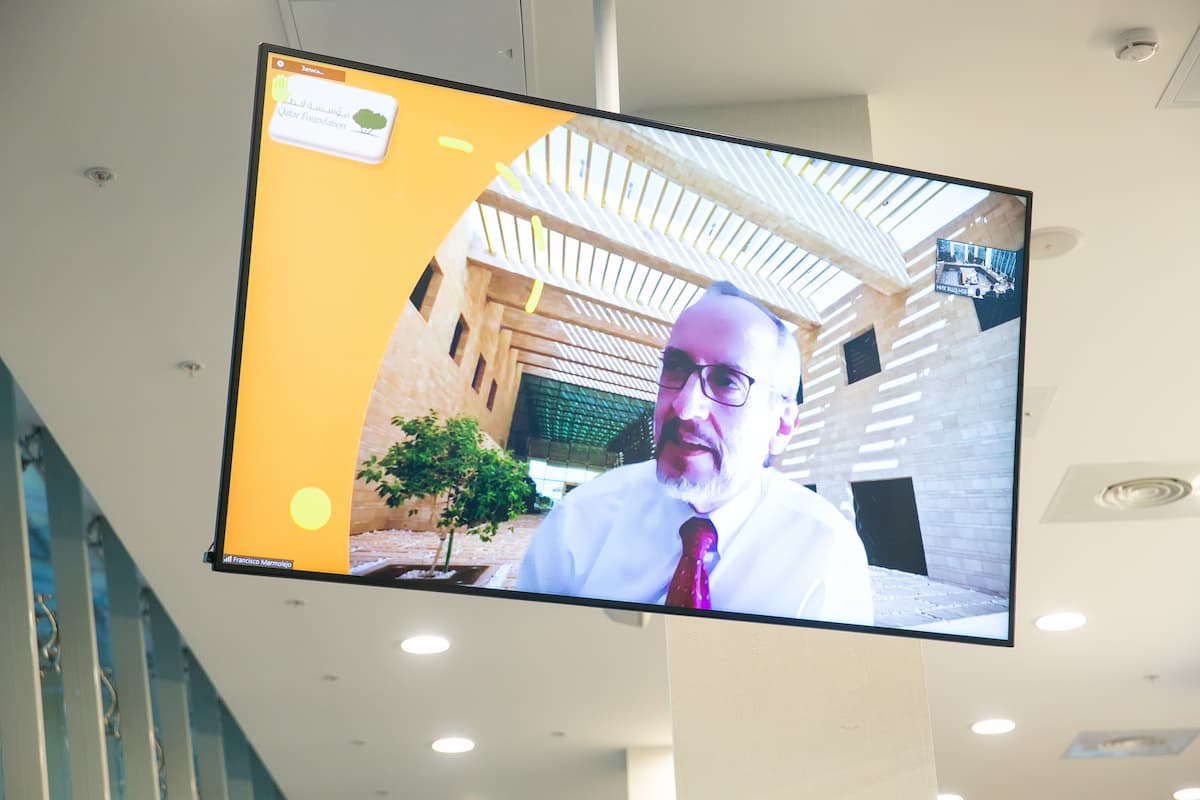
HSE University has a great opportunity to use the third mission to improve teaching and research. It is fundamental to be more explicit in defining specific metrics to measure the success so that all activities have a purpose of contributing to the improvement of the university as a whole.

Philip Altbach, Founding Director, Center for International Higher Education at Boston College
I’m quite taken with the social contribution, community involvement, working with districts in Moscow for improving the local environment, and working with older people. HSE is doing some very interesting things in this regard, which are important for student consciousness about social responsibility and society.
I see that there are two distinct buckets of activities discussed that are somewhat different in literature and people’s thinking–the one is social projects (social contributions to society) and the other is technology transfer and business relations. Putting all of them together might deserve more consideration.
The next meeting of the HSE International Advisory Committee will take place in November or December 2021.
Philip G. Altbach
Member of the International Advisory Committee
Maria Eremenko
Leading Expert, Centre for Local Community Relations
Pavel Zdorovtsev
Director, Student Development Office
Eric S. Maskin
Chairman of the International Advisory Committee
Oleg Popov
Director, HSE University's Third Mission Centre
Yulia Skokova
Director, Centre for Civic Initiatives Assessment
Nina Feodosiadi
Laboratory Head, HSE Business Incubator
Oksana Chernenko
Director for Innovations in Education
